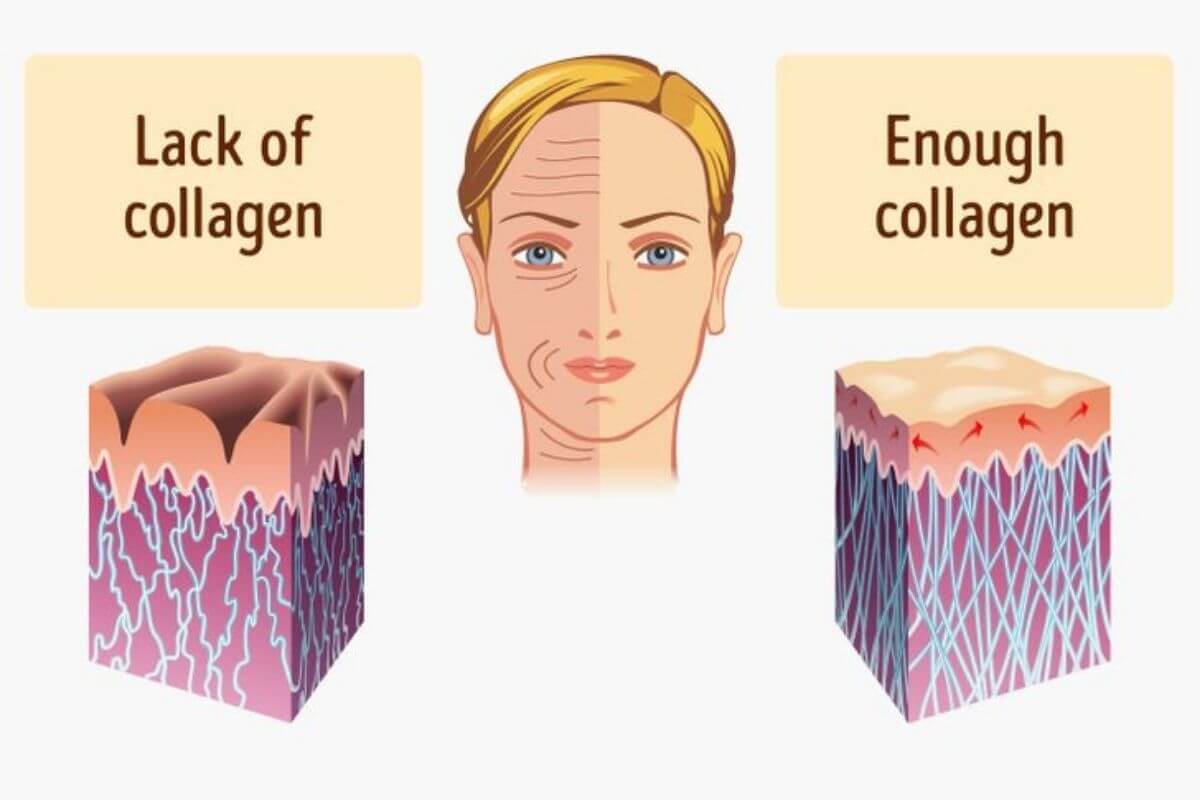Collagen is a very popular ingredient in many cosmetics and functional foods. Collagen is known by word of mouth as an ingredient that helps maintain youthful beauty. So in reality, what is Collagen? What effects does collagen bring? Let's learn more about this ingredient with Dermalogica!
What is collagen?
Collagen is a protein that accounts for the largest proportion of all proteins in the body (estimated to be about ⅓). Due to its large proportion, Collagen plays many different roles.
- Collagen plays a key role in building bone and joint structure, ligament system, muscles, tendons and skin structure.
- Collagen is an indispensable component in other organs such as cornea, teeth, blood vessels...
In Greek, “Collagen” is called “kólla” - translated into Vietnamese meaning glue. This is the main function of Collagen. This type of Protein acts as a material that helps bind tissue cells together to maintain structure and elasticity. In addition to learning about collagen components, readers can also refer to a detailed analysis of how important estrogen is for the body here .
What are the common forms of Collagen in the body?
Studies have shown that there are at least 16 types of collagen in our bodies. In which Collagen types I, II, III and IV account for the highest proportion and are the most common. The uses of each type of Collagen are as follows:
- Collagen type I: accounts for 90%. This type of collagen has a fiber bundle structure. Type I collagen plays a major role in creating body structures including: bones, joints, ligaments, muscles, skin, teeth and connective tissues.
- Type II Collagen: Type 2 collagen exists mainly in the cartilage and joint cushions and consists of thinner and more flexible collagen fibers.
- Collagen type III: This type of collagen helps support and support arteries, muscles and other organs in the body.
- Type IV Collagen: These are found in the skin layers
As we get older, the body's collagen production decreases. At the same time, collagen quality also decreases. Therefore, the skin will become less firm, saggy, and bone and joint health will also decline.
Is collagen important for skin?

What is the role of Collagen for the skin?
Collagen plays a very important role in both the health and beauty of the skin. Collagen helps strengthen skin structure and elasticity. And plays a very important role in skin hydration. Therefore, as we get older, the amount of Collagen in the skin gradually decreases in both quality and quantity. This leads to wrinkles, dry and sagging skin.
Therefore, to maintain skin beauty we need to supplement and stimulate collagen growth. This is especially important as we get older.
How to supplement Collagen?
Can collagen supplementation help maintain skin elasticity and youthfulness? This is still a question with many conflicting opinions. Let's take a look at some research on this relationship with Dermalogica!
Studies on collagen supplementation for skin

Some studies have shown: Using Collagen Peptide or products containing Collagen can slow down the skin aging process. At the same time, dry skin and wrinkles also improved significantly. Women who supplement 2.5-5 grams of collagen daily for 8 consecutive weeks will experience less dry skin and skin surface elasticity will also significantly improve. This result is compiled from comparing skin indexes between 2 groups of people of the same age. One group will use collagen supplements. The remaining group will continue with their normal diet.
Based on these studies, adding collagen to slow down the aging process and bring beauty to the skin is feasible. So what is the right way to supplement Collagen?
What is Collagen supplement?
Currently, we have 2 most popular ways to supplement Collagen for the body:
Indirect Collagen Supplement

Procollagen is the starting form of Collagen. They are created by the combination of two amino acids: Glycine and Proline. At the same time, Vitamin C is involved. Therefore, we can increase Collagen production by supplementing with the ingredients that make up Collagen:
- Vitamin C: in foods, vitamin C is abundant in: citrus fruits, bell peppers, guava, strawberries...
- Proline: This amino acid is found in wheat germ, egg whites, mushrooms, dairy products...
- Glycine: this ingredient is found in many animal skins such as pigs, chickens...
Direct Collagen Supplement

Direct supplementation is when we use hydrolyzed Collagen products (Collagen Hydrolysate) in tablet, liquid or powder form that are prepared on the market. Compared to consuming more foods containing natural Collagen, using hydrolyzed Collagen is more effective. By:
- Collagen content in small foods
- Real collagen has a much larger molecular size than collagen in the body. This causes these Collagen to be eliminated and difficult to absorb.
Hydrolyzed collagen helps solve this problem. Thanks to the application of Collagen extraction technology from naturally available raw materials into Collagen Peptides. From there, it helps the body absorb better even if only used in a small amount every day.
With the information shared in this article, Dermalogica hopes you have gained more useful knowledge about what is Collagen? What is the role of Collagen for the body and skin. In addition, the skin rejuvenation method that is very popular with those who love skin care is Retinol. So should you use Retinol? What are the effects of Retinol? Refer to the details with us.
Dermalogica looks forward to accompanying you on the path to conquering and maintaining skin beauty.


